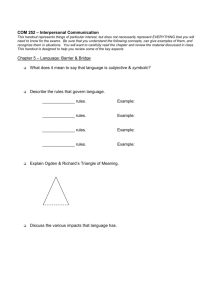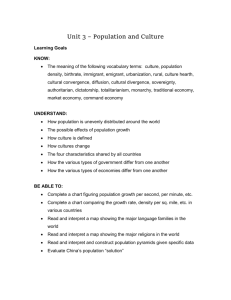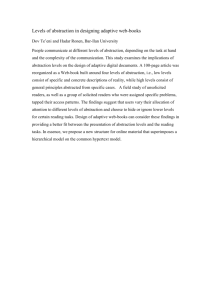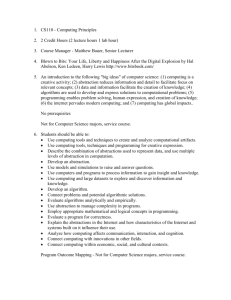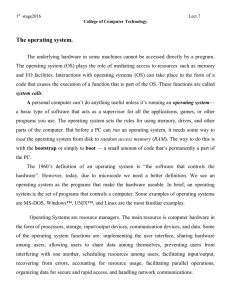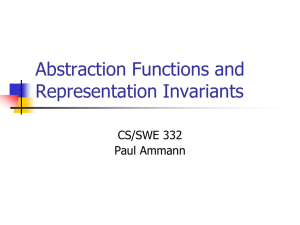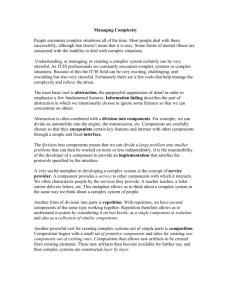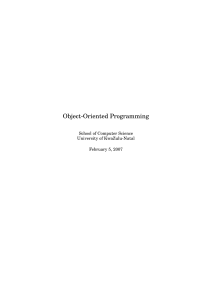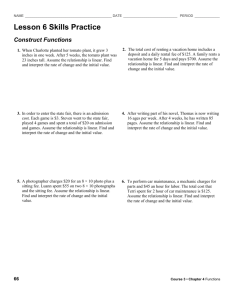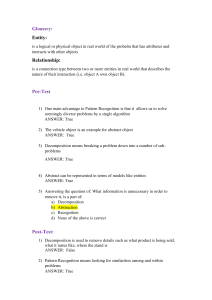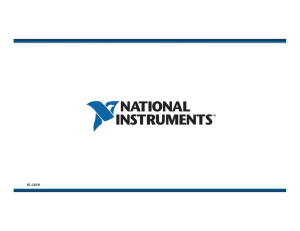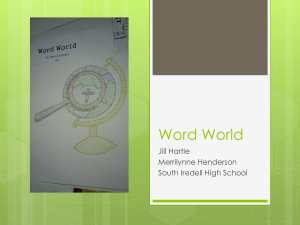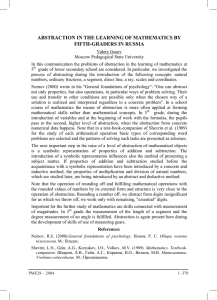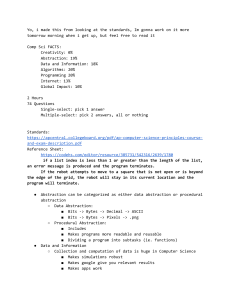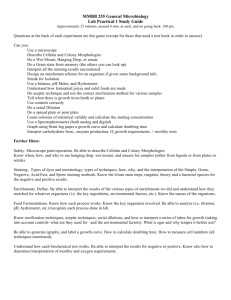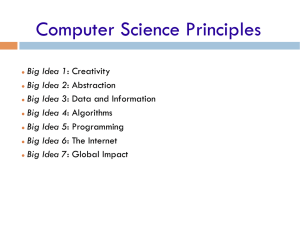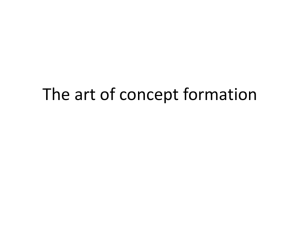Chapter Preparation Guide #3 Chapter 5
advertisement
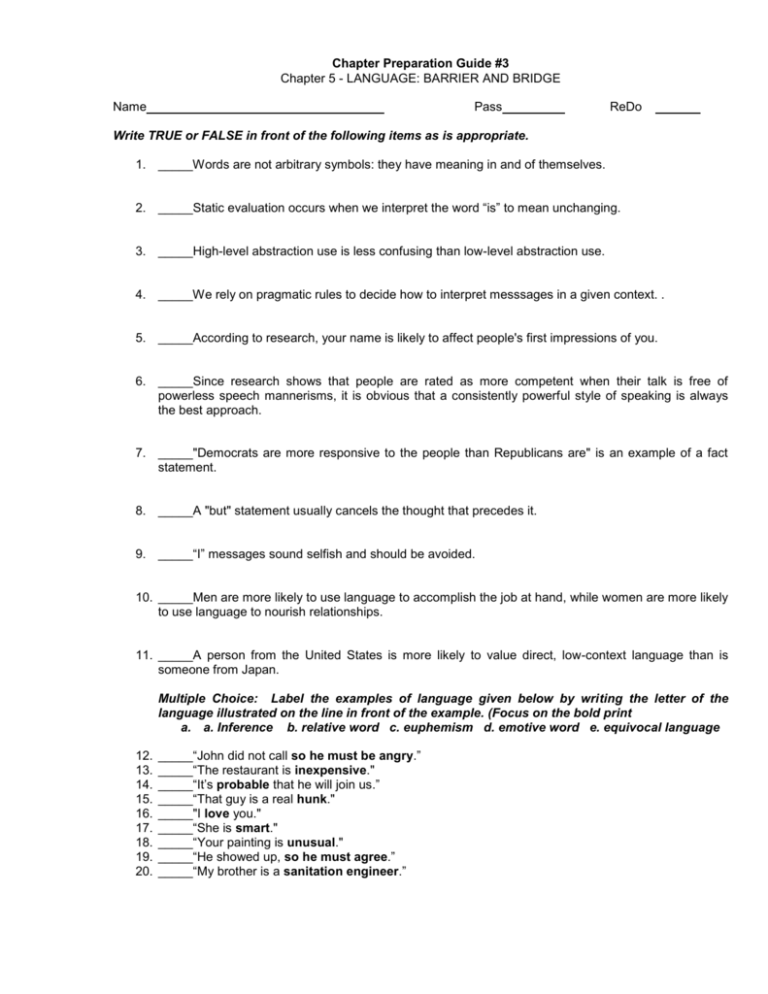
Chapter Preparation Guide #3 Chapter 5 - LANGUAGE: BARRIER AND BRIDGE Name Pass ReDo Write TRUE or FALSE in front of the following items as is appropriate. 1. _____Words are not arbitrary symbols: they have meaning in and of themselves. 2. _____Static evaluation occurs when we interpret the word “is” to mean unchanging. 3. _____High-level abstraction use is less confusing than low-level abstraction use. 4. _____We rely on pragmatic rules to decide how to interpret messsages in a given context. . 5. _____According to research, your name is likely to affect people's first impressions of you. 6. _____Since research shows that people are rated as more competent when their talk is free of powerless speech mannerisms, it is obvious that a consistently powerful style of speaking is always the best approach. 7. _____"Democrats are more responsive to the people than Republicans are" is an example of a fact statement. 8. _____A "but" statement usually cancels the thought that precedes it. 9. _____“I” messages sound selfish and should be avoided. 10. _____Men are more likely to use language to accomplish the job at hand, while women are more likely to use language to nourish relationships. 11. _____A person from the United States is more likely to value direct, low-context language than is someone from Japan. Multiple Choice: Label the examples of language given below by writing the letter of the language illustrated on the line in front of the example. (Focus on the bold print a. a. Inference b. relative word c. euphemism d. emotive word e. equivocal language 12. 13. 14. 15. 16. 17. 18. 19. 20. _____“John did not call so he must be angry.” _____“The restaurant is inexpensive." _____“It’s probable that he will join us.” _____“That guy is a real hunk." _____"I love you." _____“She is smart." _____“Your painting is unusual." _____“He showed up, so he must agree.” _____“My brother is a sanitation engineer.”
